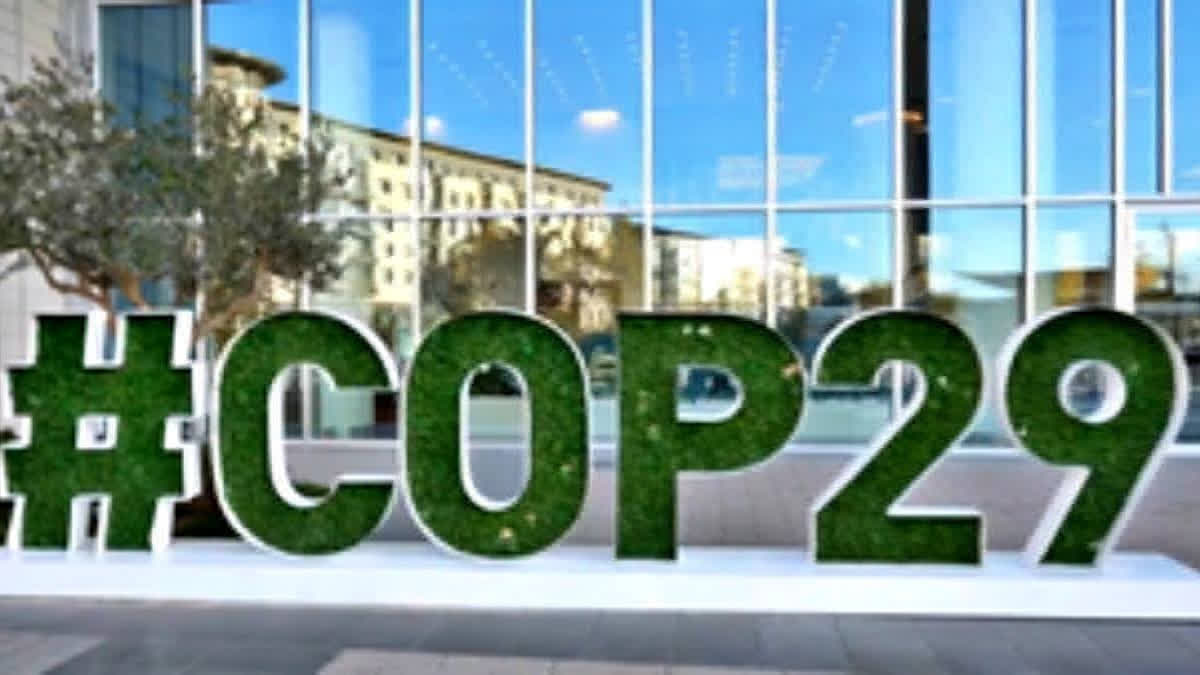New Delhi:In the wee hours of November 24, while most people in India were fast asleep, a drama unfolded at a sprawling conference hall of the Olympic stadium in Azerbaijan's capital Baku. Diplomats from nearly 200 countries, civil society representatives and journalists had gathered to witness a decision that could determine the fate of climate action in the Global South.
But what transpired was far from routine -- it was a moment of diplomatic brinkmanship that left many stunned and India's delegation fuming. As the president of this year's UN climate conference, Mukhtar Babayev, approached the centrepiece agenda item -- the New Collective Quantified Goal (NCQG) on climate finance -- India's Deputy Lead Negotiator Neelesh Sah rushed to COP29 Lead Negotiator Yalchin Rafiyev to convey that the country wants to make a statement before the adoption of the contentious decision.
Around 2:30 am, without so much as a pause for objections or comments, Babayev hammered the gavel, declaring the USD 300 billion climate-finance package adopted. The move was so swift, it left delegates from many developing countries blinking in disbelief. Avantika Goswami, head of the Climate Change Programme at the Centre for Science and Environment, said it happened "quite suddenly and unceremoniously".
"We were surprised because the last-known figure on the table -- USD 300 billion -- was far below the latest G77 compromise of USD 500 billion. We also knew that India was preparing to interject in the process. The fact that it was passed before any such objections were raised came as a surprise," she said.
Journalists witnessing the drama unfold in the plenary room saw the entire Indian delegation leap to their feet, making a timeout gesture. Sah dashed over to Rafiyev, exchanged a few words and returned to his seat, panting. Meanwhile, Babayev passed the microphone to Cuba for a statement, followed by India, Bolivia, Nigeria and Malawi, who spoke on behalf of a group of 45 least-developed countries. In total, 49 countries objected to the deal. In the UNFCCC process, one objection is enough to block a decision.
However, India had no intention of blocking the deal and its outburst was about more than just the money. Delivering India's statement, Chandni Raina, Adviser at the Department of Economic Affairs, described the manner in which the deal was adopted as "unfair" and "stage-managed". Raina was scathing about the new climate-finance package, calling the meagre USD 300 billion a year by 2035 "too little and too distant".
She labelled the sum "abysmally poor", "paltry" and an "optical illusion" -- a far cry from the USD 1 trillion developing countries need every year to cope with the warming world. Raina flagged three major issues for India in the deal -- paragraphs 8a, 8c and 9 of the agreement.
Para 8a: This suggests that the USD 300 billion will come from all sorts of sources -- public, private, bilateral, multilateral -- and not directly as public money from developed to developing countries. Developing countries have long demanded grants or grant-equivalent funding, not loans that pile on debt. Many poorer nations already spend up to 10 per cent of their GDP on servicing debt.
